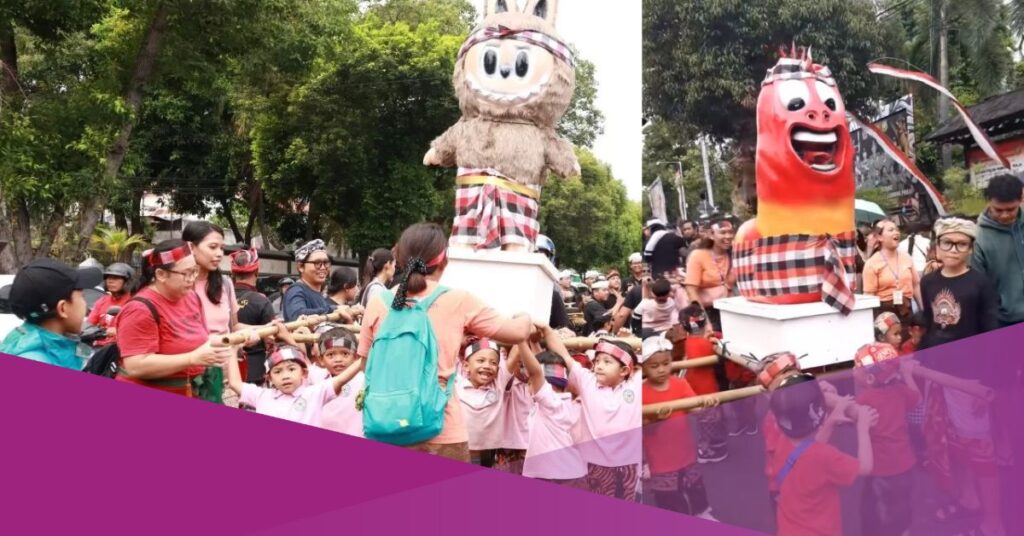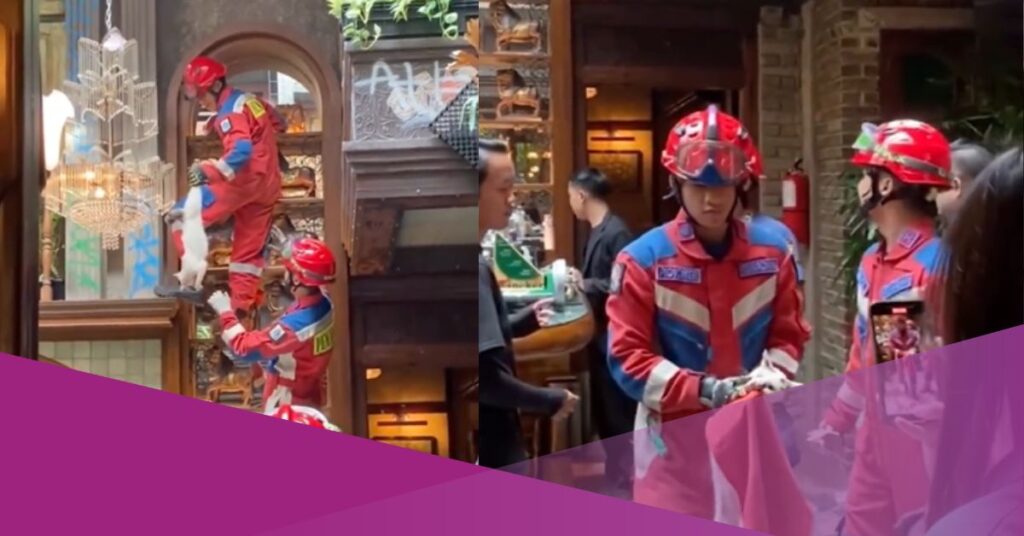As Nyepi approaches, Ogoh-Ogoh performances have become widespread in Bali. Who would have thought that this tradition is not only followed by adults but also by young children?
In a video uploaded on TikTok by @damara670, a group of kindergarten children can be seen participating in the Ogoh-Ogoh parade. While adult Ogoh-Ogoh displays often depict figures closely associated with Balinese culture, the children’s parade features something rather unique.
They showcase Ogoh-Ogoh in the form of Labubu dolls and characters from the Larva animation.
@damara670 Parade ogoh2 Rare Bali School👌🤗❤#Baliku ♬ Ogoh Ogoh – Ricky Sadha
“Rare Bali School👌🤗❤#Baliku Ogoh2 parade,” read the video’s caption.
The video received widespread attention and generated a buzz of comments.
“Introducing Balinese culture to children from an early age is becik pisan niki 🙏,” remarked one netizen.
Another commented, “Their talent has been nurtured since childhood. When they grow up, they won’t feel distant from their own culture and traditions. 👍 Keep going, younger siblings! Bali🔥🔥.”
The enthusiasm of the children taking part in the parade is truly commendable. This further establishes Bali as one of the provinces that continues to uphold its cultural heritage from an early age.
It can be said that the aim of this activity is to introduce Balinese culture to PAUD (early childhood education) children at a young age, foster their creativity and imagination, boost their self-confidence, and instil positive values.
Purpose of Ogoh-Ogoh
The Balinese believe that the primary purpose of the Ogoh-Ogoh parade is to cleanse the universe of evil and chaos, welcoming the new year with a pure state of mind. At the end of the parade, the Ogoh-Ogoh are destroyed in the Tawur Kesanga ceremony, where they are burned as a symbol of purification.
Ogoh-Ogoh figures are often depicted as creatures from Mayapada, Heaven, and Naraka, such as dragons, elephants, and widyadari. Some Ogoh-Ogoh are even crafted to resemble famous individuals, including world leaders, artists, or religious figures.
It is unsurprising that children’s Ogoh-Ogoh are inspired by animated characters, as they are at an age where they frequently watch animated films.
The Ogoh-Ogoh festival takes place on the night before Nyepi. Typically, Ogoh-Ogoh figures are prepared in advance for the celebrations the day before Nyepi. This year, Nyepi falls on 29th March 2025, meaning the Ogoh-Ogoh celebration will take place on 28th March 2025.
































